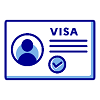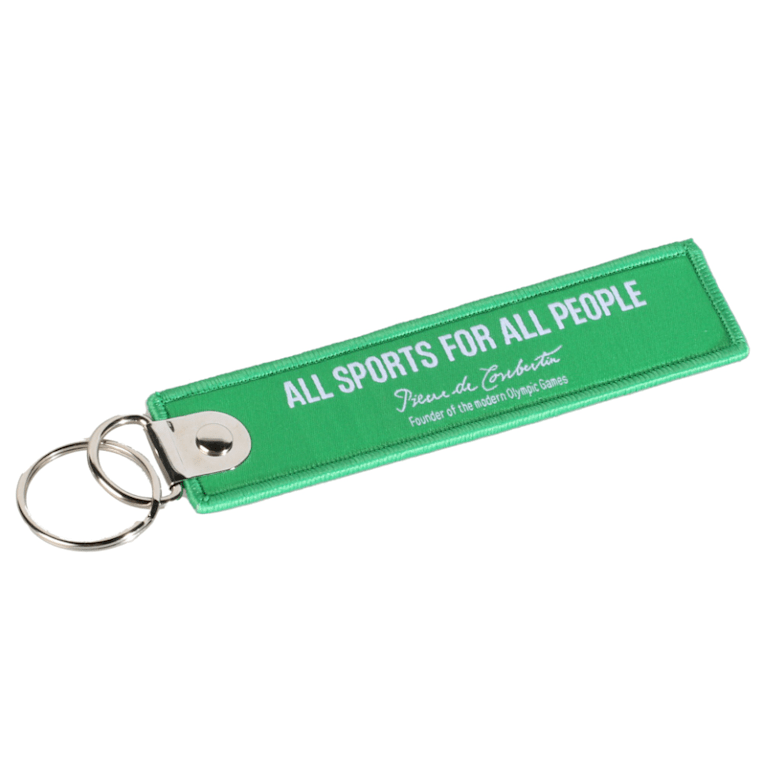We’re sorry, this site is currently experiencing technical difficulties. Please try again in a few moments. Exception: request blocked

- Immigration

Essential Documents for Traveling to France: What to Carry
If you're planning a trip to france, it's essential to have the necessary documents with you. this article provides a list of the documents you need to carry when traveling to france. ensure you have passports, visas, travel insurance, proof of accommodation, and any other relevant identification to make your travel experience smooth and hassle-free..

Key Takeaways:
- Ensure a smooth journey to France by having essential documents: valid passport, Schengen visa, travel and health insurance.
- Provide proof of accommodation, financial means, and return/onward travel ticket when entering France.
- Stay informed about additional health documentation requirements and regularly check for the latest travel updates. Bon voyage!
Essential Documents for Your Trip to France
Are you planning a trip to the picturesque landscapes of France? Whether you’re heading out for a business trip, a romantic getaway, or a cultural adventure, ensuring that you have the correct documentation is essential for a smooth journey. Here’s a handy checklist to prepare you before you say “Bonjour” to France.
Valid Passport
Your passport is the most crucial travel document. For entry into France:
- Ensure your passport is valid for at least three months beyond your planned departure date from the Schengen area.
- Check your passport pages : You should have enough blank pages for stamps upon arrival and departure.
Schengen Visa
Depending on your nationality, you may need a visa to enter France, which is part of the Schengen Area.

- Visa requirements can vary, so it’s important to check your need for a visa well in advance of your trip.
- If required, apply for a Schengen visa , which allows travel between most European countries.
For official guidelines and application procedures, visit the France-Visas website , the official portal for visa applications to France.
Also of Interest:
How to fill out form i-131: application for travel document, how to fill out form i-130a: supplemental information for spouse beneficiary, travel and health insurance.
When entering France, you may be asked to show proof of travel insurance .
- Your insurance should cover the entire Schengen zone and expenses up to €30,000.
- Ensure it includes medical coverage and repatriation costs .
Proof of Accommodation
Upon arrival, you might have to provide evidence of where you’ll be staying. This could be:
- Hotel reservations or a rental agreement.
- If staying with friends or family, a letter of invitation from your host.
Proof of Financial Means
During your stay, you might need to demonstrate you have enough funds to cover your expenses. This could include:
- Bank statements.
- Cash in a convertible currency.
- Traveller’s checks.
Return Ticket or Onward Travel
Although not always checked, being able to show a return or onward travel ticket can be required.
- It proves your intent to leave France or the Schengen area after your visit.
Health Documents
Due to health regulations that may change, such as during a pandemic, additional health documentation may be necessary.
- A negative COVID-19 test , a vaccination certificate , or health declaration might be needed depending on the current health situation.
- Check the latest health guidelines on the official French government website or the European Union travel page .
Additional Tips
- Carry photocopies of your documents and keep digital copies accessible online in case of loss or theft.
- Always have some form of identification on you during your travels.
- Check expiration dates well in advance and renew documents if needed.
Ensure you regularly check for the latest travel updates and document requirements prior to your trip, as immigration policies can change.
In conclusion, preparing the right documentation is a step you cannot skip when planning your trip to France. It’s the key to a hassle-free entry and ability to enjoy everything France has to offer, from the delightful cuisine to magnificent sights. Bon voyage!
So, my fellow travelers, don’t forget your passport, visa, insurance, accommodation proof, financial means, return ticket, and health documents when embarking on your French adventure. Check out visaverge.com for more handy travel tips and up-to-date information. Now go forth and savor the croissants, kiss the Eiffel Tower, and bask in the wonders of France! Safe travels, mes amis! 🇫🇷✈️ #visaverge #travelhacks
FAQ’s to know:
FAQ 1: What documentation do I need to travel to France?
- To travel to France, you will need a valid passport that is valid for at least three months beyond your planned departure date. Additionally, depending on your nationality, you may need a Schengen visa. It is important to check your specific visa requirements well in advance of your trip. You may also be required to show proof of travel and health insurance, as well as provide evidence of accommodation and financial means.
FAQ 2: How do I apply for a Schengen visa for France?
- To apply for a Schengen visa for France, you can visit the France-Visas website, which is the official portal for visa applications to France. The website provides guidelines and application procedures based on your specific circumstances and nationality. It is important to apply for the visa well in advance of your trip to allow sufficient processing time.
FAQ 3: What health documents do I need for travel to France?
- The health documents required for travel to France may vary depending on the current health situation, such as during a pandemic. It is recommended to check the latest health guidelines on the official French government website or the European Union travel page. These documents may include a negative COVID-19 test, a vaccination certificate, or a health declaration. Stay informed about any changes in health regulations and requirements prior to your trip.
What did you learn? Answer below to know:
- True or False: A Schengen visa allows travel between most European countries.
- What should your travel insurance cover to enter France?
- What additional health documents might be necessary for entry into France during a pandemic?
Verging Today

New USCIS Rules for H-1B Workers After Layoffs
USCIS issues guidelines for H-1B layoffs impacting immigrant workers at companies like Google and Walmart. Stay informed on visa terminations.
Trending Today
U.s. visa invitation letter guide with sample letters.
Learn how to write an invitation letter for a U.S.…
Top 10 B-1/B-2 Visa Interview Questions with Answers
Prepare for your B-1/B-2 Interview with these 20 sample questions…
H-1B 2025: Will There Be a Second Lottery?
The USCIS announced the completion of the initial H1B 2025…
Understanding 221G: Types of Visas and Refusal Reasons
221G is a visa refusal for various reasons. Understanding the…
Consequences of Overworking on Australian Student Visa: Working Hour Limits Explained
Exceeding the working hours limit on an Australian student visa…
Passport Expiration Rules: The 6 Month Validity Requirement | Countries List
Learn about passport expiration rules, including the 6-month validity requirement…
VAWA Self-Petition Guide: How to Apply & Processing Time in 2024
Learn about the VAWA self-petition processing time in 2024, how…
Can I File Multiple I-140 Petitions Simultaneously for Green Card Application Process?
Yes, it is possible to have multiple I-140 petitions filed…
Understanding the B1/B2 Visa 6 Month Rule: Stay Duration Explained for Multiple Entries
Learn about the B1/B2 visa 6 month rule and understand…
Green Card Holders: Do I Have to Stay in the US for One Year to Maintain Permanent Resident Status?
Green card holders are not required to stay in the…
Sign in to your account
Username or Email Address
Remember Me
- Go to the main menu
- Go to the mobile menu
- Go to main content
- Press Room Press Room

- Increase text size
- Decrease text size
- Add our RSS feed
Requesting a visa
- Share on Twitter
- Share on Facebook
- Partager sur Linkedin
All foreign nationals wishing to enter France must be able to submit statutory documents at the border concerning the reasons for their stay, their means of support and accommodation arrangements.
A visa is generally required, in the absence of a waiver. For general information and for preparing, submitting and tracking your visa application, log on to France-Visas , France’s official visa site.
France-Visas is a single portal with all the information you need to guide you through the process and help you every step of the way (preparing the application, entering details, submitting and tracking the application).
The main steps in applying for a visa

Do I need a visa?
First, use “Visa Wizard” on the France-Visas site to check, based on your situation, whether you need a visa and if so, what type. The wizard will also tell you what documents must be enclosed with your application, along with the relevant fee.

Complete your application online
Once you have checked that you need a visa, you can complete your application on our online portal . You will be asked to create an account and France-Visas will support you in each step of the process.

Submit your application to the visa centre.
Once you have completed your online application, all you have to do is submit it to your local visa centre. France-Visas will provide you with all necessary information on how and where to submit your application.

Track your visa application.
Once your application has been submitted, track its progress and find out how and when you can collect your passport and how to prepare for your trip to France.
Waiting times for appointments and for processing applications will vary depending on your nationality and the time of year. Users are therefore asked to submit their visa applications well in advance of their departure date .
Applying for a French residence permit
Holders of an entry and long-stay visa marked “carte de séjour à solliciter à l’arrivée en France” (residence permit to be applied for upon arrival in France) are required to contact the French prefectural authority in their place of residence, in order to apply for a residence permit within two months of entering the French territory.
Family members of a national of an EU Member State, the EEE or Switzerland who wish to submit a request for a “family member of a union citizen” residence permit must contact the competent French prefectural authority, in order to apply for a residence permit within three months of entering the French territory.
Holders of a long-stay visa marked “CESEDA R.311-3” are required to contact the French Immigration and Integration Office (OFII) immediately on arrival in France.
For more informations
Update: March 2020
On the same topic
Studying in France
Visiting France
Investing in France
France Facts
Accueil > Travel visa
Travel visa
Date of update
Citizen of a third State to the European Union, the European Economic Area or Switzerland, you wish to enter French territory for a short period?
You should apply for a short-stay visa.
The short-stay visa authorizes foreign nationals to enter French territory and stay there for a period of less than 3 months.
It can be single entry for a short stay or multiple entry for several successive short stays, in the latter case it is a travel visa (“visa de circulation”).
Non european nationals exempted from short-stay visas are exempted from travel visas. Check our dedicated sheet “Fact sheet: Short stay visa”.
A travel visa is a multiple-entry type C short-stay visa allowing an unlimited number of entries into the Schengen Area. The visa sticker bears the word Circulation (‘Travel’).
Length of stay
As for ordinary short-stay visas, the maximum length of stay is 90 days per half-year. A travel day calculator is available on the European Commission website.
Holders of this type of visa have a total of 180 days to complete either:
- A single uninterrupted 90-day stay in France or within the territory of other Schengen countries.
- Or several stays totaling up to 90 days per half-year.
Visa validity period
Travel visas are valid for between six months and five years, as stated on the visa sticker.
Obtaining a travel visa
The application procedure is the same as for an ordinary short-stay visa (documents, requirements, extension, etc.). Have a look at our dedicated fact sheet on short stay visas.
Cost of visa is also the same. Fees can be found on France-visas .
Related Cards
Visa, staying, working.
- Schengen Area
- Applying for a short-stay visa
- Fact sheet: short-stay visa
- 10 year certificate of residence
- Long-stay visa equivalent to a residence permit (VLS-TS)
- EU, EEA and Swiss nationals
- Fact sheet: long stay visa
- Fact sheet: Different visa categories
- Entering and staying in Mayotte
- Applying for a long-stay visa
Residence-permit
- Recruiting a foreign employee: cost for the employer
- Highly skilled employees: “Talent Passport – European Union Blue Card”
- Graduates – “Talent Passport – Qualified employee”
- French Tech Visa for Founders
- ‘Talent Passport –Employee of a young innovative company’ (JEI)
- Talent Passport : new business
- Talent Passport – innovative business project
- Fact sheet : Employees hired by a French company
- French Tech Visa for Employees
- Fact sheet : run a company in France
- Employees transferred within a group: ‘Talent Passport – Employee on assignment’
- Launch your startup in France
- Resident card
- French Tech Visa for Investor
- Talent Passport ‘Business investor’
Company directors
- Appointed Directors : Passport talent « Company director»
Startup founders
- Temporary residence permit ‘Entrepreneur/independent professional’
- Residence certificate for “Non-salaried professions”
- Temporary residence permit marked “Temporary worker”
- International service provider
- Intra-corporate transferees (ICT) : seconded employees
- Temporary residence permit marked “Employee”
Work permit
- Obtaining a work permit
- Renewing a work permit
- Fact sheet : work permit
- Service provision and work permit
Accompanying family
- Fact sheet: “Accompanying family” simplified procedure
- Travel document for foreign minors (DCEM)
- Family members of an EU, EEA or Swiss Nationals
- Family of French citizens
Enter your search term and press enter to validate
Cookies on GOV.UK
We use some essential cookies to make this website work.
We’d like to set additional cookies to understand how you use GOV.UK, remember your settings and improve government services.
We also use cookies set by other sites to help us deliver content from their services.
You have accepted additional cookies. You can change your cookie settings at any time.
You have rejected additional cookies. You can change your cookie settings at any time.
Register to vote Register by 18 June to vote in the General Election on 4 July.
- Passports, travel and living abroad
- Travel abroad
- Foreign travel advice
Entry requirements
This advice reflects the UK government’s understanding of current rules for people travelling on a full ‘British citizen’ passport from the UK, for the most common types of travel.
The authorities in France set and enforce entry rules. If you’re not sure how these requirements apply to you, contact France’s Embassy in the UK .
Countries may restrict travel or bring in rules at short notice. Check with your travel company or airline for changes.
Visit TravelHealthPro (from the UK’s National Travel Health Network and Centre) for general COVID-19 advice for travellers .
Public spaces
You’re strongly recommended to wear a face mask in health settings. In some areas, people aged 6 and above may need to wear a face mask.
Passport validity requirements
If you are planning to travel to an EU country (except Ireland), or Switzerland, Norway, Iceland, Liechtenstein, Andorra, Monaco, San Marino or Vatican City, follow the Schengen area passport requirements .
Your passport must be:
- issued less than 10 years before the date you enter the country (check the ‘date of issue’)
- valid for at least 3 months after the day you plan to leave (check the ‘expiry date’)
Check your passport meets these requirements before you travel. If your passport was issued before 1 October 2018, extra months may have been added to its expiry date.
Contact the French Embassy in the UK if you think that your passport does not meet both these requirements. Renew your passport if you need to .
Passport stamping
At French border control, you may need to:
- show proof of where you intend to stay, for example, a hotel booking or proof of address if visiting your own property
- show proof of insurance for your trip – check FCDO’s travel insurance guidance
- show a return or onward ticket
- prove that you have enough money for your whole stay
Check your passport is stamped if you enter or exit the Schengen area through France as a visitor. Border guards will use passport stamps to check you’re complying with the 90-day visa-free limit for short stays in the Schengen area. If relevant entry or exit stamps are not in your passport, border guards will presume that you have overstayed your visa-free limit.
You can show evidence of when and where you entered or exited the Schengen area, and ask the border guards to add this date and location in your passport. Examples of acceptable evidence include boarding passes and tickets.
If you live in France, read our Living in France guide for passport stamping information.
Proof of accommodation and funds
You may need to show proof of where you intend to stay. Read about documents you may need for short stays on the French government website . This will differ depending on where you are staying.
Staying with family, friends or a third party
You may be asked to provide an ‘attestation d’accueil’ (welcome invitation) from your host. The French resident hosting you must get the ‘attestation d’accueil’ from their local mayor’s office, and send the original ‘attestation’ before you enter France. Be prepared to show proof that you have at least €32.50 euros a day for the duration of your stay.
Second homes in France
You will need to be able to prove ownership or tenancy of your property, such as a tax or utility bill.
Staying in a hotel or other commercial accommodation
You may be asked for confirmation of your reservation when entering France. Be prepared to show proof that you have at least €65 euros a day for the duration of your stay.
Other circumstances
If you do not have an ‘attestation d’accueil’ (welcome invitation) or any pre-booked accommodation, you may be asked to prove you have at least €120 euros a day for the duration of your stay.
For more information on these requirements, visit the French government’s website on travel conditions for British citizens.
Visa requirements
You can travel to countries in the Schengen area, which France is part of, for up to 90 days in any 180-day period without a visa. This applies if you travel:
- as a tourist
- to visit family or friends
- to attend business meetings, cultural or sports events
- for short-term studies or training
If you are travelling to France and other Schengen countries without a visa, make sure your whole visit is within the 90-day limit. Visits to Schengen countries within the previous 180 days before you travel count towards your 90 days.
To stay longer (to work or study, for business travel or for other reasons), you will need to meet the French government’s entry requirements. Check which type of visa you may need on the France Visas website .
If you are travelling to France for work , read the guidance on visas and permits.
If you stay in France with a residence permit or long-stay visa, this does not count towards your 90-day visa-free limit.
British citizens who cannot return to the UK before their visa, permit or visa-free limit expires should contact their local prefecture in France .
Vaccination requirements (other than COVID-19)
At least 8 weeks before your trip, check the vaccinations and vaccination certificates you may need on TravelHealthPro.
Customs rules
There are strict rules about goods that can be brought into and taken out of France. Check the French Directorate General of Customs and Excise website . Declare anything that may be prohibited or subject to tax or duty.
Taking food and drink into the EU
You cannot take meat, milk or products containing them into EU countries. There are some exceptions for medical reasons, for example certain amounts of powdered infant milk, infant food, or pet food required for medical reasons. Check the rules about taking food and drink into the EU on the European Commission website.
Related content
Is this page useful.
- Yes this page is useful
- No this page is not useful
Help us improve GOV.UK
Don’t include personal or financial information like your National Insurance number or credit card details.
To help us improve GOV.UK, we’d like to know more about your visit today. Please fill in this survey (opens in a new tab) .
An official website of the United States government
Here’s how you know
Official websites use .gov A .gov website belongs to an official government organization in the United States.
Secure .gov websites use HTTPS A lock ( Lock Locked padlock icon ) or https:// means you’ve safely connected to the .gov website. Share sensitive information only on official, secure websites.

U.S. citizens traveling abroad
Learn about visa requirements, Trusted Traveler Programs like Global Entry, emergencies, and more.
International driver’s license for U.S. citizens
If you are a U.S. citizen planning to drive while traveling abroad, find out if you need an International Driving Permit (IDP) for the country you are visiting.
Do you need a passport to travel to or from U.S. territories or Freely Associated States?
Whether you need a passport as a U.S. citizen to travel to or from a U.S. territory or Freely Associated State depends on your destination.
COVID-19 international travel advisories
If you plan to visit the U.S., you do not need to be tested or vaccinated for COVID-19.
Visa requirements for U.S. citizens traveling abroad
If you are a U.S. citizen planning to travel outside the U.S., you may need a visa to enter a foreign country. Learn how to find your destination's visa requirements.
Save time getting through airport security with Trusted Traveler Programs
Trusted Traveler Programs, like TSA Precheck and Global Entry, can help reduce airport security and border crossing wait times. Learn about applying for and managing memberships.
Emergency help for Americans abroad
Find out what to do in an emergency in another country, including assistance, money and more.
Authenticate an official document for use outside the U.S.
Apostilles and authentication certificates show U.S. documents are genuine. Learn when to use each.
Home Explore France Official Tourism Board Website
- Explore the map
Brexit: travel rules between the UK and France
Inspiration

Reading time: 0 min Published on 11 January 2023, updated on 23 April 2024
On 1 January 2021 Brexit came into effect, re-establishing the borders between the UK and France. Here's the information you need to know before planning trips between the two countries.
Please consult our dedicated Covid-19 article for the latest updates on travel between the UK and France.
Following a transition period, Brexit came into effect on 1 January 2021 and the UK left the European Union. Free movement no longer applies between the UK and France, and migration controls have been re-established to and from the UK.
Travel arrangements
For British travellers to France:
Since 1 January 2021, British nationals have been subject to more in-depth checks when travelling. They are encouraged to allow additional time for border control and use the queue labelled 'Ressortissant de pays tiers' rather than 'EU / EEA / CH'.
British nationals who are not resident in an EU Member State and who wish to travel to France for a short stay (a maximum of 90 days in a 180-day period), or who are in transit to another Member State or to the Schengen area, do not require a visa.
Travellers need to:
- present their passport with at least six months' validity, which will be stamped upon entering and leaving the Schengen area. The maximum duration of a short stay cannot exceed 90 days within a period of 180 days;
- be able to prove that they have sufficient funds to meet their needs during their stay. With some exceptions, the minimum required in France is calculated as 65 euros per day. Examples of proof include cash or a bank statement;
- obtain travel insurance covering all medical, hospital and death expenses that could be incurred during their stay in France, including repatriation costs for medical reasons. Current EHIC cards will still be valid until their expiry date.
The supporting documents used to verify compliance with the entry conditions are listed in Annex I of the Schengen Borders Code, accessible here .
Further information on travel arrangements for British nationals to France is available on the French government website here and the UK government website here .
For international tourists wishing to visit both France and the UK on the same trip:
EU, EEA and Swiss citizens can travel to the UK visa-free for holidays or short stays. A passport valid for the duration of the stay is required to enter UK territory. Until 1 October 2021, it is also possible to travel with a valid national ID card.
For nationals from outside the EU, a visa may be required to stay in the UK. Further information is available on the UK government website here .
Travellers from the UK to France are subject to customs control to comply with deductibles for purchases made in the UK, in quantity for alcohol and tobacco, and in value for other goods. The level of these exemptions is specified on the French Directorate General of Customs and Excise website here .
Purchases made in France may be eligible for tax relief - check here . PABLO machines, which automate this process, are available in ports, airports and train stations serving the UK.
Further information on customs procedures for UK travellers to France is available on the French government website here and the UK government website here .
Download the Brexit guide for travellers (French only)
Driving licences
British nationals travelling to France for a short stay can drive under their UK driving licence. An international driving licence is not required.
Travelling with pets
It is no longer possible to enter an EU territory with a European pet passport issued in the UK. British nationals travelling to France with dogs or cats must comply with the following health conditions defined by the regulation of 12 June 2013: - ensure that pets are identifiable by way of a microchip or clearly legible tattoo made before 3 July 2011; - ensure that pets have been vaccinated against rabies and that the vaccine is still valid; - ensure that each pet has a health certificate issued by a registered UK vet. The certificate must be accompanied by proof of vaccination against rabies as well as a document attesting to the pet's ID. Certificates are valid for a period of 10 days from the date of issue and must be presented during border checks during this period. They remain valid in EU territories and Northern Ireland for a period of four months.
EU or Northern Irish nationals returning from a temporary stay in the UK and transporting dogs or cats to France must be in possession of a European pet passport. The passport must certify a valid anti-rabies vaccination and must be presented at border control.
On arrival in France, travellers with pets will need to enter through a designated travellers’ point of entry (TPE).

By France.fr
The magazine of the destination unravels an unexpected France that revisits tradition and cultivates creativity. A France far beyond what you can imagine…
Coronavirus Info: the situation in France

Holidays at Galeries Lafayette

Air France, the best and most comfortable way to get to France

French Wine Tasting with Duclot La Cave

Gift vouchers for your shopping at Galeries Lafayette

The Christmas Windows Display and Characters

A Fairy Tale 1, 2, 3 Christmas!

8 Luxurious Boutiques in Paris

- Skip to main content
- Skip to "About this site"
Language selection
Search travel.gc.ca.
Help us to improve our website. Take our survey !
COVID-19: travel health notice for all travellers
France travel advice
Latest updates: The Need help? section was updated.
Last updated: June 7, 2024 08:16 ET
On this page
Safety and security, entry and exit requirements, laws and culture, natural disasters and climate, france - exercise a high degree of caution.
Exercise a high degree of caution in France due to the elevated threat of terrorism.
Back to top
"Attack emergency" alert
On March 24, 2024, the Prime Minister of France raised the security threat level within the “Vigipirate” plan to “urgence attentat” (“attack emergency”). This is the highest level in the Vigipirate plan, a set of measures to prepare and protect the population and public places. The decision was made following a terrorist attack in Moscow claimed by the Islamic State.
Always be aware of your surroundings when in public places. Be particularly alert during public gatherings and demonstrations.
If you are in France:
- expect enhanced security measures and an increased police presence at the border and in public places
- monitor local media for the most recent information
- follow the instructions of local authorities
Vigipirate plan – Government of France (in French)
Olympic and Paralympic Games
The Olympic Games will take place in Paris from July 26 to August 11, followed by the Paralympic Games from August 28 to September 8, 2024.
Public events will take place across France starting on May 8 and will continue until the opening ceremony.
If you plan to travel to France during this time, plan your travel accordingly.
During the Olympic Games, especially in Paris, you should expect:
- an increased presence of security forces
- major disruptions to traffic and movement
- large crowds and public gatherings
Useful links
- Games-related information and advice for Canadians
- Olympic and Paralympic Games Paris 2024 – official site
Commemorative ceremony for the 80th anniversary of the Normandy Landings
The Commemorative Ceremony for the 80th anniversary of the Normandy Landings will be held in France on June 6, 2024.
If you are in Normandy or plan to travel there during the 80th anniversary of the Landings:
- exercise caution
- avoid unauthorized demonstrations and large gatherings
- monitor local media to stay informed of the situation
- follow the advice of local authorities
D-Day 80 - Veterans Affairs Canada
There is a threat of terrorism in Europe. Terrorists have carried out attacks in several European cities.
Over the past few years in France, several opportunistic and premeditated attacks have occurred. These have resulted in many deaths and injuries. Further attacks are likely.
Vigipirate plan
The Vigipirate plan is a set of measures established by the French government to prepare and protect the French population, infrastructure and institutions in the event of an attack. The aim is also to allow rapid deployment of intervention measures if necessary.
As part of this plan, the government maintains a 3-level public alert system for terrorism. Changes in the threat level are communicated online and through local and national media.
Operation sentinelle
Operation Sentinelle allows the deployment of military brigades in public places to patrol and deter terrorist acts. Enhanced security measures have been deployed in various strategic locations, including:
- transport hubs
- public places
- tourist locations, especially in Paris
Expect an increased police or military presence in public places, including some tourist locations, particularly in Paris.
Attacks can occur anywhere. Terrorists may target:
- government buildings and those of local authorities
- schools/universities
- places of worship
- places dedicated to culture, such as exhibition galleries, museums, concert halls and theatres
- airports, railway stations and other transportation hubs and networks
- public areas such as tourist attractions, monuments, restaurants, bars, coffee shops, shopping centres, markets, hotels and other sites frequented by foreigners
While in France:
- always be aware of your surroundings when in public places
- be particularly vigilant if attending large gatherings such as sporting events and religious celebrations or other public celebrations
- Information on the terrorist threat in France - Ministry of the Interior (in French)
- How to react in case of a terrorist attack - Government of France (in French)
- Social media accounts of the Ministry of the Interior - Ministry of the Interior (in French)
- Vigipirate – General secretary of defense and national security (in French)
Petty crime
Petty crimes, such as pickpocketing, and purse and mobile phone snatching are common.
Thieves are very skilled. They often act in groups and are often minors. They may use various techniques to divert your attention and steal your belongings.
Thieves are mainly active in large cities and busy places, such as:
- the main tourist sites
- department stores
- restaurants and patios
- hotel lobbies
- public transport, in particular the Paris metro and the Île-de-France regional express network (RER) lines linking the capital to its surroundings
Violent crimes
Violent crimes are rarer, but still occur.
Tourists are sometimes victims of violent attacks by groups of young people who want to rob them. These attacks usually occur :
- around major tourist attractions
- near railway stations
- on trains of the Île-de-France regional express network (RER) connecting the capital to its surroundings
Assaults can also occur outside night-time establishments and in more isolated areas at night.
Residential break-ins
Residential break-ins occur, especially in large cities and coastal areas. Burglars sometimes target houses or holiday rental apartments.
- be vigilant, particularly when approached by strangers
- ensure that your belongings, including passports and other travel documents, are secure at all times
- avoid showing signs of affluence and carrying large sums of cash
- limit the use of mobile phones on public transportation and in crowded areas to ensure you remain aware of your surroundings and to avoid attracting attention
- don’t keep your credit, debit cards and cash in the same place
- never leave your bags unsupervised
- choose well-secured accommodation and make sure you lock doors and windows at night and when you’re away
Parked vehicles and vehicles on the road
Vehicle break-ins are frequent. Theft of parked cars or their contents is particularly common on beach roads in the south of France and at highway rest stops throughout the country, especially during the summer, when there is a high number of travellers.
- Leave nothing in view in the vehicle
- Use secure parking facilities
- Be particularly vigilant when renting automobiles, as rented vehicles are a target of choice
Drivers are often tricked into stopping their cars by thieves who either obstruct the road or distract the driver by flashing their headlights. They may also pretend that you have a flat tire or even puncture a tire themselves. Once the vehicle is stopped, the thieves seize the opportunity to steal a bag or other valuable objects.
- Beware of any person who waves at you to stop on the highway
- Be especially vigilant when stopped at traffic lights, as bags are often snatched from the front passenger seat by thieves travelling on scooters
- Keep windows closed and doors locked at all times
Victims of crime
If you’re a victim of theft, go to the nearest police station to report the crime. Keep a copy of your theft report, as you will need it if you wish to make a claim to your insurer. If the incident takes place in the metro, a metro officer can direct you to the nearest police station.
You can complete an online pre-complaint for certain types of minor crime, such as property theft, before going to the police station. This may speed up the process once you get there.
- Prevention advice for tourists - Préfecture de police de Paris
- Online pre-complaint - Ministry of the Interior (in French)
Bomb threats
Since October 2023, there have been a number of bomb threats sent to public places across France.
Bomb threats and hoaxes can target any location, including:
- tourist areas
- shopping centres
- transportation hubs
- government facilities
- religious institutions
If you are in an area targeted by a bomb threat, follow the instructions of local authorities including evacuation orders.
Credit card and ATM fraud
Credit card and ATM fraud occurs.
When using debit or credit cards:
- pay careful attention if other people are handling your cards
- use ATMs located in public areas or inside a bank or business
- avoid using card readers with an irregular or unusual feature
- cover the keypad with one hand when entering your PIN
- check for any unauthorized transaction on your account statements
Cybercrime occurs. Perpetrators may compromise public Wi-Fi networks to steal credit card or personal information.
- Avoid using unsecured public Wi-Fi networks
- Avoid making purchases on unencrypted websites
- Be cautious when posting information on social media
- Be particularly vigilant when contacting or meeting individuals known over the internet
Overseas fraud
Demonstrations
Demonstrations occur frequently. They are usually planned as permission from the local authorities is required. However, unauthorized and spontaneous demonstrations also take place.
Even peaceful demonstrations can turn violent at any time. They can also lead to disruptions to traffic and public transportation.
Radical activists and vandals have a history of using aggressive and violent tactics during demonstrations in order to cause damage and provoke a strong response from the police. They sometimes throw stones, smoke grenades, bottles and other debris at rallies. The police normally respond with tear gas to disperse the crowds.
- Avoid areas where demonstrations and large gatherings are taking place
- Follow the instructions of local authorities
- Monitor local media for information on ongoing demonstrations
Mass gatherings (large-scale events)
Strikes and pressure tactics occur regularly, particularly in key sectors such as transport. These strikes can sometimes complicate travel and disrupt public services.
- Consult local media to be aware of strikes that may affect your stay or travel plans
- In the event of a transport strike, plan extra time to get to your destination
Swimming, boating and water safety
Coastal waters can be dangerous. Always obey warning flags at beaches.
The main warning flags used in France are:
- Green: calm waters, swimming is allowed
- Yellow: agitated waters, swim with precautions
- Red: dangerous waters, swimming is prohibited
- Purple: contaminated waters or presence of dangerous aquatic species, swimming is prohibited
In autumn and winter, be cautious when walking on the shore, as waves can be unpredictable, breaking further than expected and causing strong undertows.
- Avoid visiting beaches or coastal areas during periods of severe weather warnings
- Look out for signs warning of cliff erosion and falling rocks
- Don’t dive into unknown waters, as hidden rocks or shallow depths can cause serious injury or death
- Exercise caution and follow the advice of the local authorities
Recreational boating
If you are planning to go boating:
- know the capacity of your boat (people and weight) and don’t exceed it
- know the navigation rules
- follow safe practices for all activities on the water: personal watercraft, water-skiing and towed devices, diving or swimming, fishing, etc.
- equip your boat with a VHF marine radio that will generate your position in case of emergency
- be prepared for emergencies
Search and rescue missions in France are carried out by the Regional Operational Surveillance and Rescue Centres (CROSS). In case of emergency, contact the centre on VHF radio channel 16 or by dialling 196.
- Surveillance and rescue at sea - Ministry of the Sea (in French)
- Water safety abroad
Mountain activities
Mountain activities, such as hiking, can be dangerous, especially if they are not well prepared. Trails are not always marked and weather conditions can change rapidly, even in summer.
In winter, heavy snowfall can make it difficult to reach some villages and ski centres. Roads may become impassable. There is also a risk of avalanches, some of which can be fatal.
If you intend to go hiking, mountaineering or skiing:
- never do so alone and do not part with your hiking companions
- buy travel insurance that includes helicopter rescue and medical evacuation
- ensure that your physical condition is good enough to meet the challenges of your activity
- do not venture off marked trails or slopes
- ensure that you’re adequately equipped
- stay informed about weather and other conditions that may pose a hazard
- inform a family member or friend of your itinerary
- know the symptoms of acute altitude sickness, which can be fatal
- obtain detailed information on your activity and on the environment in which you will be doing it before setting out
- Information on mountain conditions - Association nationale pour l'étude de la neige et des avalanches (ANENA) (in French)
- Specialised mountain units - Gendarmerie nationale (in French)
- Avalanche forecasts and warnings - European Avalanche Warning Service (EAWS)
Road safety
French roads are well maintained.
Drive carefully and respect the Highway Code.
Public transportation
Urban and intercity public transportation is reliable. When using these types of transport, make sure you validate your ticket and keep it until the end of your journey. The authorities carry out regular random checks and you may be fined if you do not have a validated ticket.
There is a problem of illegal taxis in Paris airports and train stations. These scammers charge much higher rates than the official ones.
- Ignore direct solicitations when leaving the airport or train station
- Use only official taxis or a trusted ride-sharing app
- Don’t share a taxi with strangers
We do not make assessments on the compliance of foreign domestic airlines with international safety standards.
Information about foreign domestic airlines
Every country or territory decides who can enter or exit through its borders. The Government of Canada cannot intervene on your behalf if you do not meet your destination’s entry or exit requirements.
We have obtained the information on this page from the French authorities. It can, however, change at any time.
Verify this information with the Foreign Representatives in Canada .
- Schengen area
France is a Schengen area country. Canadian citizens do not need a visa for travel to countries within the Schengen area. However, visa-free travel only applies to stays of up to 90 days in any 180-day period. Stays are cumulative and include visits to any Schengen area country.
If you plan to stay in the Schengen area for a longer period of time, you will need a visa. You must contact the high commission or embassy of the country or countries you are travelling to and obtain the appropriate visa(s) prior to travel.
- Foreign Representatives in Canada
Temporary border controls
The French government has reintroduced internal border controls at certain ports of entry. You may be required to pass through immigration controls when entering France, even if arriving from another Schengen area country.
Entry requirements vary depending on the type of passport you use for travel.
Before you travel, check with your transportation company about passport requirements. Its rules on passport validity may be more stringent than the country’s entry rules.
Regular Canadian passport
Your passport must be valid for at least 3 months beyond the date you expect to leave the Schengen area.

Passport for official travel
Different entry rules may apply.
Official travel
Passport with “X” gender identifier
While the Government of Canada issues passports with an “X” gender identifier, it cannot guarantee your entry or transit through other countries. You might face entry restrictions in countries that do not recognize the “X” gender identifier. Before you leave, check with the closest foreign representative for your destination.
Other travel documents
Different entry rules may apply when travelling with a temporary passport or an emergency travel document. Before you leave, check with the closest foreign representative for your destination.
- Foreign Representatives in Canada
- Canadian passports
Tourist visa: not required for stays up to 90 days in any 180-day period Long-stay or residency visa: required for stays longer than 90 days Work permit: required Student visa: required for stays longer than 90 days
More information on Visas - Government of France
Other entry requirements
Customs officials may ask you to show them a return or onward ticket and proof of sufficient funds to cover your stay.
- Children and travel
To leave France, any child under the age of 18 who normally resides in France must be accompanied by at least one parent. Children travelling without at least one parent must be in possession of:
- an authorization to leave the country signed by one of the parents
- a photocopy of the signing parent’s identification
- More information on the authorization to leave the country - French administration services
- More about travelling with children
Yellow fever
Learn about potential entry requirements related to yellow fever (vaccines section).
Relevant Travel Health Notices
- Global Measles Notice - 13 March, 2024
- Zika virus: Advice for travellers - 31 August, 2023
- COVID-19 and International Travel - 13 March, 2024
- 2024 Summer Olympics and Paralympics – France - 6 June, 2024
This section contains information on possible health risks and restrictions regularly found or ongoing in the destination. Follow this advice to lower your risk of becoming ill while travelling. Not all risks are listed below.
Consult a health care professional or visit a travel health clinic preferably 6 weeks before you travel to get personalized health advice and recommendations.
Routine vaccines
Be sure that your routine vaccinations , as per your province or territory , are up-to-date before travelling, regardless of your destination.
Some of these vaccinations include measles-mumps-rubella (MMR), diphtheria, tetanus, pertussis, polio, varicella (chickenpox), influenza and others.
Pre-travel vaccines and medications
You may be at risk for preventable diseases while travelling in this destination. Talk to a travel health professional about which medications or vaccines may be right for you, based on your destination and itinerary.
Yellow fever is a disease caused by a flavivirus from the bite of an infected mosquito.
Travellers get vaccinated either because it is required to enter a country or because it is recommended for their protection.
- There is no risk of yellow fever in this country.
Country Entry Requirement*
- Proof of vaccination is not required to enter this country.
Recommendation
- Vaccination is not recommended.
* It is important to note that country entry requirements may not reflect your risk of yellow fever at your destination. It is recommended that you contact the nearest diplomatic or consular office of the destination(s) you will be visiting to verify any additional entry requirements.
About Yellow Fever
Yellow Fever Vaccination Centres in Canada
Tick-borne encephalitis (TBE) is a risk in some areas of this destination. It is a viral disease that affects the central nervous system (brain and spinal cord). It is spread to humans by the bite of infected ticks or occasionally when unpasteurized milk products are consumed.
Travellers to areas where TBE is found may be at higher risk during April to November, and the risk is highest for people who hike or camp in forested areas.
Protect yourself from tick bites . The vaccine is not available in Canada. It may be available in the destination you are travelling to.
Measles is a highly contagious viral disease. It can spread quickly from person to person by direct contact and through droplets in the air.
Anyone who is not protected against measles is at risk of being infected with it when travelling internationally.
Regardless of where you are going, talk to a health care professional before travelling to make sure you are fully protected against measles.
Hepatitis B is a risk in every destination. It is a viral liver disease that is easily transmitted from one person to another through exposure to blood and body fluids containing the hepatitis B virus. Travellers who may be exposed to blood or other bodily fluids (e.g., through sexual contact, medical treatment, sharing needles, tattooing, acupuncture or occupational exposure) are at higher risk of getting hepatitis B.
Hepatitis B vaccination is recommended for all travellers. Prevent hepatitis B infection by practicing safe sex, only using new and sterile drug equipment, and only getting tattoos and piercings in settings that follow public health regulations and standards.
Coronavirus disease (COVID-19) is an infectious viral disease. It can spread from person to person by direct contact and through droplets in the air.
It is recommended that all eligible travellers complete a COVID-19 vaccine series along with any additional recommended doses in Canada before travelling. Evidence shows that vaccines are very effective at preventing severe illness, hospitalization and death from COVID-19. While vaccination provides better protection against serious illness, you may still be at risk of infection from the virus that causes COVID-19. Anyone who has not completed a vaccine series is at increased risk of being infected with the virus that causes COVID-19 and is at greater risk for severe disease when travelling internationally.
Before travelling, verify your destination’s COVID-19 vaccination entry/exit requirements. Regardless of where you are going, talk to a health care professional before travelling to make sure you are adequately protected against COVID-19.
The best way to protect yourself from seasonal influenza (flu) is to get vaccinated every year. Get the flu shot at least 2 weeks before travelling.
The flu occurs worldwide.
- In the Northern Hemisphere, the flu season usually runs from November to April.
- In the Southern Hemisphere, the flu season usually runs between April and October.
- In the tropics, there is flu activity year round.
The flu vaccine available in one hemisphere may only offer partial protection against the flu in the other hemisphere.
The flu virus spreads from person to person when they cough or sneeze or by touching objects and surfaces that have been contaminated with the virus. Clean your hands often and wear a mask if you have a fever or respiratory symptoms.
In this destination, rabies may be present in some wildlife species, including bats. Rabies is a deadly disease that spreads to humans primarily through bites or scratches from an infected animal.
If you are bitten or scratched by an animal while travelling, immediately wash the wound with soap and clean water and see a health care professional.
Before travel, discuss rabies vaccination with a health care professional. It may be recommended for travellers who will be working directly with wildlife.
Safe food and water precautions
Many illnesses can be caused by eating food or drinking beverages contaminated by bacteria, parasites, toxins, or viruses, or by swimming or bathing in contaminated water.
- Learn more about food and water precautions to take to avoid getting sick by visiting our eat and drink safely abroad page. Remember: Boil it, cook it, peel it, or leave it!
- Avoid getting water into your eyes, mouth or nose when swimming or participating in activities in freshwater (streams, canals, lakes), particularly after flooding or heavy rain. Water may look clean but could still be polluted or contaminated.
- Avoid inhaling or swallowing water while bathing, showering, or swimming in pools or hot tubs.
Insect bite prevention
Many diseases are spread by the bites of infected insects such as mosquitoes, ticks, fleas or flies. When travelling to areas where infected insects may be present:
- Use insect repellent (bug spray) on exposed skin
- Cover up with light-coloured, loose clothes made of tightly woven materials such as nylon or polyester
- Minimize exposure to insects
- Use mosquito netting when sleeping outdoors or in buildings that are not fully enclosed
To learn more about how you can reduce your risk of infection and disease caused by bites, both at home and abroad, visit our insect bite prevention page.
Find out what types of insects are present where you’re travelling, when they’re most active, and the symptoms of the diseases they spread.
- In this country, risk of dengue is sporadic. It is a viral disease spread to humans by mosquito bites.
- Dengue can cause flu-like symptoms. In some cases, it can lead to severe dengue, which can be fatal.
- The level of risk of dengue changes seasonally, and varies from year to year. The level of risk also varies between regions in a country and can depend on the elevation in the region.
- Mosquitoes carrying dengue typically bite during the daytime, particularly around sunrise and sunset.
- Protect yourself from mosquito bites . There is no vaccine or medication that protects against dengue fever.
Zika virus is a risk in this country.
Zika virus is primarily spread through the bite of an infected mosquito. It can also be sexually transmitted. Zika virus can cause serious birth defects.
During your trip:
- Prevent mosquito bites at all times.
- Use condoms correctly or avoid sexual contact, particularly if you are pregnant.
If you are pregnant or planning a pregnancy, you should discuss the potential risks of travelling to this destination with your health care provider. You may choose to avoid or postpone travel.
For more information, see Zika virus: Pregnant or planning a pregnancy.
Animal precautions
Some infections, such as rabies and influenza, can be shared between humans and animals. Certain types of activities may increase your chance of contact with animals, such as travelling in rural or forested areas, camping, hiking, and visiting wet markets (places where live animals are slaughtered and sold) or caves.
Travellers are cautioned to avoid contact with animals, including dogs, livestock (pigs, cows), monkeys, snakes, rodents, birds, and bats, and to avoid eating undercooked wild game.
Closely supervise children, as they are more likely to come in contact with animals.
Person-to-person infections
Stay home if you’re sick and practise proper cough and sneeze etiquette , which includes coughing or sneezing into a tissue or the bend of your arm, not your hand. Reduce your risk of colds, the flu and other illnesses by:
- washing your hands often
- avoiding or limiting the amount of time spent in closed spaces, crowded places, or at large-scale events (concerts, sporting events, rallies)
- avoiding close physical contact with people who may be showing symptoms of illness
Sexually transmitted infections (STIs) , HIV , and mpox are spread through blood and bodily fluids; use condoms, practise safe sex, and limit your number of sexual partners. Check with your local public health authority pre-travel to determine your eligibility for mpox vaccine.
Medical services and facilities
Health care is excellent and available throughout the country. Up-front payment may be required.
Make sure you get travel insurance that includes coverage for medical evacuation and hospital stays.
Travel health and safety
Keep in Mind...
The decision to travel is the sole responsibility of the traveller. The traveller is also responsible for his or her own personal safety.
Be prepared. Do not expect medical services to be the same as in Canada. Pack a travel health kit , especially if you will be travelling away from major city centres.
You must abide by local laws.
Learn about what you should do and how we can help if you are arrested or detained abroad .
Transfer to a Canadian prison
Canada and France are signatories to the Convention on the Transfer of Sentenced Persons. This enables a Canadian imprisoned in France to request a transfer to a Canadian prison to complete a sentence. The transfer requires the agreement of both Canadian and France authorities.
This process can take a long time, and there is no guarantee that the transfer will be approved by either or both sides.
Penalties for possession, use or trafficking of illegal drugs are severe. Convicted offenders can expect jail sentences or heavy fines.
Drugs, alcohol and travel
Identity checks
You may be subject to identity checks during your stay in France.
Always carry valid identification such as a driver's licence, passport or a copy of it.
Keep photocopies or digital copies of the following documents, in case of loss or seizure:
- the identification page of your passport
- your birth certificate
- your Canadian citizenship card
- your driver’s licence
Keep originals and copies in separate safe locations.
Concealing your face in public places
In France, it’s illegal to cover your face in public places, including international airport arrivals areas.
Offenders risk a very high fine. There is no exemption for tourists or for religious reasons.
- Identity checks - French administration services
- Concealment of the face in public places - French administration services
Dual citizenship
Dual citizenship is legally recognized in France.
If you are a Canadian citizen, but also a citizen of France, our ability to offer you consular services may be limited while you're there. You may also be subject to different entry/exit requirements .
Travellers with dual citizenship
International Child Abduction
The Hague Convention on the Civil Aspects of International Child Abduction is an international treaty. It can help parents with the return of children who have been removed to or retained in certain countries in violation of custody rights. The convention applies between Canada and France.
If your child was wrongfully taken to, or is being held in France, and if the applicable conditions are met, you may apply for the return of your child to the French court.
If you are in this situation:
- act as quickly as you can
- contact the Central Authority for your province or territory of residence for information on starting an application under The Hague Convention
- consult a lawyer in Canada and in France to explore all the legal options for the return of your child
- report the situation to the nearest Canadian government office abroad or to the Vulnerable Children's Consular Unit at Global Affairs Canada by calling the Emergency Watch and Response Centre
If your child was removed from a country other than Canada, consult a lawyer to determine if The Hague Convention applies.
Be aware that Canadian consular officials cannot interfere in private legal matters or in another country's judicial affairs.
- List of Canadian Central Authorities for the Hague Convention
- International Child Abductions: A guide for affected parents
- The Hague Convention – Hague Conference on Private International Law
- Canadian embassies and consulates by destination
- Request emergency assistance
You must be at least 18 years old to drive a car in France.
You should carry an International Driving Permit. You can drive with your Canadian licence for up to 1 year. If you stay in France, you will have to exchange your Canadian licence for a French licence.
Numerous roadside cameras have been installed to help enforce traffic regulations. You could receive heavy fines if you do not obey the speed limit or the Highway Code. Local authorities may also confiscate your driver’s licence.
Fines must generally be paid within 3 days. They may be increased in case of delay of payment.
A reflective vest and warning triangle are mandatory in all vehicles.
From November 1 to March 31, winter tires or chains are compulsory in some cities and regions in mountainous areas.
Priority to the right
The “priority to the right” system is in effect in France. Drivers must give way to vehicles approaching from the right at intersections, even on secondary roads. This is often a surprise to foreign drivers and results in accidents.
In general, traffic in a roundabout has priority over vehicles trying to enter it. Priority switches to vehicles from the left.
Low-emission zones
Some cities and territories have put in place low emission zones to reduce air pollution.
Access to these zones is restricted to vehicles that meet certain environmental standards. You may need to get a permit to drive in these areas.
- More information about road travel in France - European Commission
- Obligations to equip vehicles in winter - French administration services (in French)
- Air quality certificates: Crit'Air - Ministry of Ecological Transition (in French)
The currency of France is the euro (EUR).
If you are carrying €10,000 or more, or the equivalent in other currencies, you must make a declaration to customs when you enter or leave the European Union. It includes sums in:
- banknotes and coins
- bearer negotiable instruments such as cheques, travellers’ cheques, promissory notes and money orders
- bonds, shares
- gold coins with a gold content of at least 90 %
- gold bars, nuggets or clumps with a gold content of at least 99.5 %
- any other convertible asset
This does not apply if you are travelling within the European Union or in transit to a non-EU country.
EU cash controls - European Commission
There is a risk of avalanches in mountainous areas, which can cause fatal accidents. If you intend to ski or climb, find out about the weather and safety conditions and follow the advice given.
- Familiarise yourself with the avalanche risk levels - French administration services
There is a risk of seasonal flooding, particularly in areas along major rivers and streams. Flooding can hamper overland travel and the provision of essential services.
The French government has a flood forecasting service called Vigicrues.
- Exercise caution
- Stay informed of the latest regional weather forecasts
Flooding risk - Vigicrues
Forest and maquis fires
Forest and maquis fires often occur in summer, particularly on the Mediterranean coast and in Corsica.
The air quality in areas near active fires may deteriorate due to heavy smoke.
There is a ban on smoking in woods and forests during high forest fire risk periods as defined by the prefecture. This ban applies equally to areas situated within 200m of wooded areas.
In case of a major fire:
- stay away from affected areas, particularly if you suffer from respiratory ailments
- monitor local media for up-to-date information on the situation
Forest weather – Météo France (in French)
Local services
Dial 112 for emergency assistance.
Dial 17 to connect to the police.
French Guiana, Guadeloupe, Martinique, Mayotte, Monaco, La Réunion, Saint-Barthélemy, Saint-Martin, Saint-Pierre-et-Miquelon
South Region
Région Occitanie
Rhône-Alpes Region
American Samoa, Cook Islands, Fiji, French Polynesia, Kiribati, Niue, Samoa, Tokelau, Tonga, Tuvalu, Wallis and Futuna
Consular assistance - France
Please call the consulates before visiting them.
For emergency consular assistance, call the Embassy of Canada to France, in Paris, and follow the instructions
Consular assistance - Wallis and Futuna
For emergency consular assistance, call the High Commission of Canada to New Zealand, in Wellington, and follow the instructions.
At any time, you may also contact the Emergency Watch and Response Centre in Ottawa.
The decision to travel is your choice and you are responsible for your personal safety abroad. We take the safety and security of Canadians abroad very seriously and provide credible and timely information in our Travel Advice to enable you to make well-informed decisions regarding your travel abroad.
The content on this page is provided for information only. While we make every effort to give you correct information, it is provided on an "as is" basis without warranty of any kind, expressed or implied. The Government of Canada does not assume responsibility and will not be liable for any damages in connection to the information provided.
If you need consular assistance while abroad, we will make every effort to help you. However, there may be constraints that will limit the ability of the Government of Canada to provide services.
Learn more about consular services .
Risk Levels
take normal security precautions.
Take similar precautions to those you would take in Canada.
Exercise a high degree of caution
There are certain safety and security concerns or the situation could change quickly. Be very cautious at all times, monitor local media and follow the instructions of local authorities.
IMPORTANT: The two levels below are official Government of Canada Travel Advisories and are issued when the safety and security of Canadians travelling or living in the country or region may be at risk.
Avoid non-essential travel
Your safety and security could be at risk. You should think about your need to travel to this country, territory or region based on family or business requirements, knowledge of or familiarity with the region, and other factors. If you are already there, think about whether you really need to be there. If you do not need to be there, you should think about leaving.
Avoid all travel
You should not travel to this country, territory or region. Your personal safety and security are at great risk. If you are already there, you should think about leaving if it is safe to do so.
Security Alert May 17, 2024
Worldwide caution, update may 10, 2024, information for u.s. citizens in the middle east.
- Travel Advisories |
- Contact Us |
- MyTravelGov |
Find U.S. Embassies & Consulates
Travel.state.gov, congressional liaison, special issuance agency, u.s. passports, international travel, intercountry adoption, international parental child abduction, records and authentications, popular links, travel advisories, mytravelgov, stay connected, legal resources, legal information, info for u.s. law enforcement, replace or certify documents.
Reports and Statistics
Create a MyTravelGov Account
Share this page:
MyTravelGov provides a modernized platform where you can submit and check on requests to the Bureau of Consular Affairs. To get started, create MyTravelGov account. With an account, you can apply for an electronic Consular Report of Birth Abroad (CRBA) in most countries.
Video: How to Create a MyTravelGov Account
Follow the steps in the video to setup your account today!
External Link
You are about to leave travel.state.gov for an external website that is not maintained by the U.S. Department of State.
Links to external websites are provided as a convenience and should not be construed as an endorsement by the U.S. Department of State of the views or products contained therein. If you wish to remain on travel.state.gov, click the "cancel" message.
You are about to visit:
- Summer Travel Season: Tips for Traveling as a U.S. Visa Holder

Summer is travel season, and whether you are traveling this summer to obtain a visa, or are traveling with a valid visa, there is a lot to keep in mind. From knowing the right documents to carry to making sure to schedule your appointment with enough time in advance, traveling as a nonimmigrant U.S. visa holder can be difficult. Below, we have compiled some tips and guidelines to keep in mind when traveling to avoid issues and ensure smooth travels this season.
Traveling to a Visa Appointment
Traveling to a visa appointment can be an intimidating process. Before traveling to a consulate or embassy, make sure you have completed Form DS-160 Online Nonimmigrant Visa Application, which can be found here . Once you complete the form, you can schedule your appointment through ustraveldocs.com, the official Department of State Visa Appointment Service. Also, be sure to visit the website of the consulate or embassy you will be visiting, in case they have specific rules or regulations around appointments, safety or visa fees.
Once you have scheduled your visit at a United States consulate or embassy, make sure you bring the appropriate documents to your appointment. For example, those seeking an H-1B visa stamp, should bring:
- your DS-160 confirmation page,
- visa application fee payment receipt,
- a printed copy of your appointment letter,
- at least one passport-style photograph taken within the last six months (some consulates require more),
- a passport valid for at least 6 months beyond the H-1B petition’s expiration,
- a photocopy of your I-797 approval notice,
- photocopy of the underlying petition,
- any original diplomas or transcripts (translated if necessary),
- recent earning statements,
- evidence of legal immigration status,
- a letter of support from your employer, and
- a reciprocity fee or land border crossing fee, if required.
This list is typical, but country-specific information on supporting documents and fees can be found here . Derivative applicants, like the spouses and children of H-1B applicants, should also be sure to bring documents showing their relationship, such as a marriage license or birth certificate. For information about what to bring to appointments for other types of nonimmigrant visas, contact your Dinsmore immigration counsel.
One of the most important considerations when scheduling a visa appointment is the wait time. Estimated wait times vary widely both by consulate and nonimmigrant visa type. For example, the wait time for a B-1 visa interview at the U.S. Embassy in Ho Chi Minh City, Vietnam is 22 days, while the wait is 738 days in Istanbul, Turkey. You can check the U.S. Department of State’s website to find the estimated wait times here . We have listed a few of the wait times* for the most popular Consulates and Embassies below**:
- Chennai, India – 529 Days
- Lagos, Nigeria – 437 Days
- Beijing, China – 30 Days
- Hong Kong – 75 Days
- Manila, Philippines – 85 Days
- London, United Kingdom – 110 Days
- Tel Aviv, Israel – 71 Days
- New Delhi, India – 163 Days
- Mumbai, India – 492 Days
- Buenos Aires, Argentina – 87 Days
- Sao Paulo, Brazil – 129 Days
- Mexico City, Mexico – 631 Days
- Monterrey, Mexico – 456 Days
*All wait times reflected are for a B-1, Business Visitor Visa Appointment where an interview is required.
**Wait times reflected are current as of June 4, 2024.
Traveling with a Valid Visa
Even if you already have a valid passport and a valid visa stamp, there are things to keep in mind when traveling. First, you should ensure that your passport or travel document and visa stamp are not due to lapse or expire while you are outside the U.S. Second, you should carry with you a copy of the approval notice, Form I-797, which serves as the basis for your current immigration status. Third, you should carry two recent pay receipts of proof of ongoing employment with your sponsoring employer, if applicable. If you are the derivative of a nonimmigrant approval (H-4, L-2, etc.), make sure you have the principal applicant’s documents with you when you travel, since they are the basis for your status. For example, if your spouse has an H-1B approval notice, and you are in H-4 status based on their H-1B status, make sure that you have the approval notice and their most recent I-94 with you when you travel.
Additionally, when you return to the U.S. from foreign travel, U.S. immigration officers may make mistakes on the expiration date listed on your I-94. Your I-94 is your Department of Homeland Security Arrival/Departure Record, and making sure this record is as accurate as possible is crucial for immigration purposes. You can access your most recent I-94 and a record of your departures and arrivals at https://i94.cbp.dhs.gov/I94/#/home . When you enter the U.S., make sure that the I-94 has been correctly issued, and if there are any issues, contact your U.S. Customs and Border Protection office to correct the mistake or contact your counsel for assistance.
Latest Posts
- Ticketmaster Scalped by Data Breach
- New Regulation Now Requires Ohio Nurses To Self-Report Criminal Convictions Within 30 Days
- Department of Health and Human Services Aligns Substance Use Disorder Privacy Rules with HIPAA Standards
- [Webinar] AI's Goldilocks Problem for Officers and Directors: Getting Risk Management "Just Right" - June 13th, 12:00 pm - 1:00 pm ET
See more »
DISCLAIMER: Because of the generality of this update, the information provided herein may not be applicable in all situations and should not be acted upon without specific legal advice based on particular situations.
Refine your interests »
Written by:

PUBLISH YOUR CONTENT ON JD SUPRA NOW
- Increased visibility
- Actionable analytics
- Ongoing guidance
Published In:
Dinsmore & shohl llp on:.

"My best business intelligence, in one easy email…"


Access sale

Watch replays

Iga Swiatek: Top facts you might not know about the Polish tennis star

The Eiffel Tower wears the Olympic rings

Kieran Reilly’s ride to the world stage | Athletes to Watch

48-year-old Oksana Chusovitina says she's aiming for LA 2028

Leo Neugebauer just won the NCAA decathlon title. What does that mean for Paris?

Melanie de Jesus dos Santos exclusive: "I really want to get closer to excellence."
Weekly ticket release: new tickets go on sale every thursday at 10am.

Re-live the Olympic Qualifier Series Shanghai
Watch fresh replays from the Olympic Qualifier Series Part 1 in Shanghai, where 464 athletes showcased their skills in breaking, sport climbing, skateboarding and BMX freestyle.

Road to Paris 2024

2024 ISSF Shooting Olympic Qualifier World Cup Rifle / Pistol, Munich

2024 UIPM Modern Pentathlon Olympic Qualifier World Championships, Zhengzhou

Olympic Qualifier Series 2024 | Budapest
Get ready for the games.

ABOUT THE GAMES

Celebrating the Games

Spectator Information
Travelling to the games.
Get ready with Worldwide Olympic Partner, Allianz. You enjoy the action. We’ll do the rest.

OLYMPIC SHOP

LA 2028 Neon Outline Graphic Hoodie

Woman LA28 Pride V-Neck T-Shirt

Men LA28 Snapback Hat

Paris 2024 Mascot Plush - 9"

Woman LA28 Neon Tag V-Neck T-Shirt

The Olympic Collection Pierre de Coubertin - Key ring

Men LA28 Neon Tags Long Sleeve T-Shirt

Paris 2024 Hoodie - Black
Download the official app.
Never miss a moment! Enjoy full access to breaking news, live sports, original series, and so much more.
Download now

Questions? Contact us
How to buy tickets for the Olympic Games Paris 2024?
Tickets for the Olympic Games Paris 2024 are available for spectators around the world only on the official ticketing website. To buy tickets, click here .
The Paris 2024 Hospitality program offers packages that include tickets for sporting events combined with exceptional services in the competition venues (boxes, lounges) or in the heart of the city (accommodation, transport options, gastronomy, tourist activities, etc.).
The Paris 2024 Hospitality program is delivered by the official Paris 2024 Hospitality provider, On Location.
For more information about the Paris 2024 Hospitality & Travel offers, click here .
What is the official mascot of the Olympic Games Paris 2024?
The Olympic Games Paris 2024 mascot is Olympic Phryge. The mascot is based on the traditional small Phrygian hats for which they are shaped after.
The name and design were chosen as symbols of freedom and to represent allegorical figures of the French republic.
The Olympic Phryge is decked out in blue, white and red - the colours of France’s famed tricolour flag - with the golden Paris 2024 logo emblazoned across its chest.
When and where are the next Olympic Games?
The Olympic Games Paris 2024 will take place in France from 26 July to 11 August.
What sports are in the Olympic Games Paris 2024?
- 3X3 Basketball
- Artistic Gymnastics
- Artistic Swimming
- Beach Volleyball
- Canoe Slalom
- Canoe Sprint
- Cycling BMX Freestyle
- Cycling BMX Racing
- Cycling Mountain Bike
- Cycling Road
- Cycling Track
- Marathon Swimming
- Modern Pentathlon
- Rhythmic Gymnastics
- Rugby Sevens
- Skateboarding
- Sport Climbing
- Table Tennis
- Weightlifting
Where to watch the Olympic Games Paris 2024?
In France, the 2024 Olympic Games will be broadcast by Warner Bros. Discovery (formerly Discovery Inc.) via Eurosport, with free-to-air coverage sub-licensed to the country's public broadcaster France Télévisions. For a detailed list of the Paris 2024 Media Rights Holders here .
How many athletes compete in the Olympic Games Paris 2024?
Around 10,500 athletes from 206 NOCs will compete.
How often are the modern Olympic Games held?
The summer edition of the Olympic Games is normally held every four years.
Where will the 2028 and 2032 Olympic Games be held?
Los Angeles, USA, will host the next Olympic Games from 14 to 30 July 2028. Brisbane , Australia, will host the Games in 2032.
What is the difference between the Olympic Summer Games and the Olympic Winter Games?
The summer edition of the Olympic Games is a multi-sport event normally held once every four years usually in July or August.
The Olympic Winter Games are also held every four years in the winter months of the host location and the multi-sports competitions are practised on snow and ice.
Both Games are organised by the International Olympic Committee.
Which cities have hosted the Olympic Summer Games?
- 1896 Athens
- 1904 St. Louis
- 1908 London
- 1912 Stockholm
- 1920 Antwerp
- 1928 Amsterdam
- 1932 Los Angeles
- 1936 Berlin
- 1948 London
- 1952 Helsinki
- 1956 Melbourne
- 1968 Mexico City
- 1972 Munich
- 1976 Montreal
- 1980 Moscow
- 1984 Los Angeles
- 1992 Barcelona
- 1996 Atlanta
- 2000 Sydney
- 2004 Athens
- 2008 Beijing
- 2012 London
- 2016 Rio de Janeiro
What year did the Olympic Games start?
The inaugural Games took place in 1896 in Athen s, Greece.
WORLDWIDE PARTNERS

Title Transfers and Changes
To prove vehicle ownership, it’s important to have a valid, up-to-date, and accurate California Certificate of Title. Here’s how you can transfer and change a title.
Transfer your Title online!
You can now transfer a title online. Learn more about the steps and get started.
How to Transfer a Title
Anytime there’s a change to a vehicle or vessel’s registered owner or lienholder, that change must be updated in DMV’s records within 10 days and the California Certificate of Title must be transferred to the new owner.
A change in ownership is usually due to:
- Sale, gift, or donation
- Adding or deleting the name of an owner
- Inheritance
- Satisfaction of lien (full payment of car loan)
To transfer a title, you will need:
- Either the California Certificate of Title or an Application for Replacement or Transfer of Title (REG 227) (if the title is missing).
- The signature(s) of seller(s) and lienholder (if any).
- The signature(s) of buyer(s).
- A transfer fee .
Depending on the type of transfer, you might need to complete and submit additional forms. See below for other title transfers and title transfer forms.
Submit your title transfer paperwork and fee (if any) to a DMV office or by mail to:
DMV PO Box 942869 Sacramento, CA 94269
Rush Title Processing
If you need us to expedite your title processing, you can request rush title processing for an additional fee.
Transfer Fees
Depending on the type of transfer, you may need to pay the following fees:
- Replacement title
- Use tax, based on the buyer’s county of residence
- Registration
See the full list of fees .
Renewal fees and parking/toll violation fees don’t need to be paid to issue a replacement California Certificate of Title.
Title Transfer Forms
These forms may be required when transferring ownership of a vehicle or vessel: Application for Replacement or Transfer of Title (REG 227) Vehicle/Vessel Transfer and Reassignment (REG 262) form (call the DMV’s automated voice system at 1-800-777-0133 to have a form mailed to you) Statement of Facts (REG 256) Lien Satisfied/Title Holder Release (REG 166) Notice of Transfer and Release of Liability Smog certification Vehicle Emission System Statement (Smog) (REG 139) Declaration of Gross Vehicle Weight (GVW)/Combined Gross Vehicle Weight (CGW) (REG 4008) Affidavit for Transfer without Probate (REG 5) Bill of Sale (REG 135) Verification of Vehicle (REG 31)
Other Title Transfers
When you’re buying a new car or a used car from a dealership, the dealer will handle the paperwork and you’ll receive your title from DMV in the mail.
When vehicle ownership is transferred between two private parties, it’s up to them to transfer the title. If you have the California Certificate of Title for the vehicle , the seller signs the title to release ownership of the vehicle. The buyer should then bring the signed title to a DMV office to apply for transfer of ownership.
If you don’t have the California Certificate of Title , you need to use an Application for Replacement or Transfer of Title (REG 227) to transfer ownership. The lienholder’s release, if any, must be notarized. The buyer should then bring the completed form to a DMV office and we will issue a new registration and title.
Make sure you have all signatures on the proper lines to avoid delays.
Other Steps for the Seller When Vehicle Ownership is Transferred
- 10 years old or older.
- Commercial with a GVW or CGW of more than 16,000 pounds.
- New and being transferred prior to its first retail sale by a dealer.
- Complete a Notice of Transfer and Release of Liability (NRL) within 5 days of releasing ownership and keep a copy for your records.
Once the seller gives the buyer all required documentation and DMV receives the completed NRL, the seller’s part of the transaction is complete.
*If the vehicle has been sold more than once with the same title, a REG 262 is required from each seller.
Other Steps for the Buyer When Vehicle Ownership is Transferred
- Current registered owner(s), how names are joined (“and/or”), and lienholder/legal owner (if any).
- License plate number, vehicle identification number (VIN), make, model, year, and registration expiration date.
- Title brands (if any).
- Words “Nontransferable/No California Title Issued,” indicating a California title was not issued and a REG 227 cannot be used (see FAQs).
- Get a smog inspection (if applicable).
Once the buyer has provided the DMV with all the proper documents and fees, the vehicle record is updated to reflect the change of ownership and a registration card is issued.
A new title is issued from DMV headquarters within 60 calendar days.
To transfer a vehicle between family members, submit the following:
- The California Certificate of Title properly signed or endorsed on line 1 by the registered owner(s) shown on the title. Complete the new owner information on the back of the title and sign it.
- A Statement of Facts (REG 256) for use tax and smog exemption (if applicable).
- Odometer disclosure for vehicles less than 10 years old.
- Transfer fee .
You may transfer a vehicle from an individual to the estate of that individual without signatures on the Certificate of Title.
Submit the following:
- The California Certificate of Title. On the back of the title, the new owner section must show “Estate of (name of individual)” and their address. Any legal owner/lienholder named on the front of the title must be re-entered on the back of the title.
- A Statement of Facts (REG 256) confirming the owner is deceased and Letters Testamentary have not been issued. The person completing the statement must indicate their relationship to the deceased.
Use tax and a smog certification are not required.
Vehicle ownership can be transferred to a deceased owner’s heir 40 days after the owner’s death, as long as the value of the deceased’s property in California does not exceed:
- $150,000 if the deceased died before 1/1/20.
- $166,250 if the deceased died on or after 1/1/20.
If the heir will be the new owner, submit the following to a DMV office:
- The California Certificate of Title. The heir must sign the deceased registered owner’s name and countersign on line 1. The heir should complete and sign the back of the title.
- Affidavit for Transfer without Probate (REG 5) , completed and signed by the heir.
- An original or certified copy of the death certificate of all deceased owners.
If the heir prefers to sell the vehicle, the buyer also needs (in addition to the items above):
- Bill of Sale (REG 135) from the heir to the buyer.
- Transfer fee (two transfer fees are due in this case).
To transfer vessel ownership, submit the following:
- The California Certificate of Ownership. The registered owner signs line 1. The legal owner/lienholder (if any) signs line 2. Complete the new owner information on the back of the certificate and sign it.
- Bill(s) of sale, if needed to establish a complete chain of ownership.
- A Vessel Registration Fee .
- Use tax based on the tax rate percentage for your county of residence.
After you sell a vessel, complete a Notice of Transfer and Release of Liability (NRL) within five days of releasing ownership and keep a copy for your records.
How to Update or Change a Title
Because a California Certificate of Title is a legal document, it is important to keep it accurate and up-to-date. Here’s how you can update or change a title.
Order a Replacement California Certificate of Title
You must order a replacement California Certificate of Title when the original is lost, stolen, damaged, illegible, or not received.
To order a replacement title, submit the following:
- Application for Replacement or Transfer of Title (REG 227) .
- The original title (if you have it).
- California photo driver license (if submitting form in person).
- Replacement title fee .
- If another replacement title was issued in the past 90 days, a Verification of Vehicle (REG 31) completed by the California Highway Patrol (CHP). This requirement only applies if the registered owner’s name or address doesn’t match DMV records*.
You can submit your application either in-person* at a DMV office or by mail:
Department of Motor Vehicles Registration Operations PO Box 942869 Sacramento, California 94269-0001
If you’re submitting your form to a DMV office, we recommend you make an appointment so you can avoid any lines.
You’ll receive your title by mail 15-30 calendar days from the date you submit the replacement title application.
*If you’re applying for a replacement title and the registered owner’s name or address doesn’t match DMV records (except for obvious typographical errors), you must submit your application in person with proof of ownership (e.g. registration card) and an acceptable photo ID (e.g. driver’s license/ID card).
Online Replacement Title Request
Visit our Virtual Office to request a replacement title online.
Change or Correct a Name on a Title
Your true full name must appear on your vehicle or vessel California Certificate of Title and registration card. If your name is misspelled, changes (e.g as a result of marriage or divorce), or is legally changed, you need to correct your name on your title.
To change or correct your name, submit:
- California Certificate of Title with your correct name printed or typed in the “New Registered Owner” section
- A completed Name Statement in Section F of the Statement of Facts (REG 256) .
You may submit your application to any DMV office or by mail to:
Department of Motor Vehicles Vehicle Registration Operations PO Box 942869 Sacramento, CA 94269-0001
Removing Information that was Entered by Mistake
If a name or other information is entered on a title by mistake, complete a Statement to Record Ownership (REG 101) .
Frequently Asked Questions
If the vehicle has a legal owner/lienholder, then section 5 of the REG 227 needs to be notarized. If the registration does not show a legal owner/lienholder, notarization is not required.
Need help finding the lienholder on your vehicle title? We keep a listing of banks, credit unions, and financial/lending institutions that may have gone out of business, merged, changed their name, or been acquired by another financial institution.
No. You must obtain a title from the state where the vehicle was last titled.
If you’re unable to obtain a title from that state, provide documentation that they cannot issue a title. A motor vehicle bond may be required
Contact us for more information .
Need something else?
Fee calculator.
Use our fee calculator to estimate any applicable registration or title transfer fees.
Renew Your Vehicle Registration
You need to renew your vehicle registration every 1-5 years in California, depending on the vehicle. Make sure your registration is up-to-date.
Make an Appointment
Some applications can be submitted to a DMV office near you. Make an appointment so you don’t have to wait in line.
General Disclaimer
When interacting with the Department of Motor Vehicles (DMV) Virtual Assistant, please do not include any personal information.
When your chat is over, you can save the transcript. Use caution when using a public computer or device.
The DMV chatbot and live chat services use third-party vendors to provide machine translation. Machine translation is provided for purposes of information and convenience only. The DMV is unable to guarantee the accuracy of any translation provided by the third-party vendors and is therefore not liable for any inaccurate information or changes in the formatting of the content resulting from the use of the translation service.
The content currently in English is the official and accurate source for the program information and services DMV provides. Any discrepancies or differences created in the translation are not binding and have no legal effect for compliance or enforcement purposes. If any questions arise related to the information contained in the translated content, please refer to the English version.
Google™ Translate Disclaimer
The Department of Motor Vehicles (DMV) website uses Google™ Translate to provide automatic translation of its web pages. This translation application tool is provided for purposes of information and convenience only. Google™ Translate is a free third-party service, which is not controlled by the DMV. The DMV is unable to guarantee the accuracy of any translation provided by Google™ Translate and is therefore not liable for any inaccurate information or changes in the formatting of the pages resulting from the use of the translation application tool.
The web pages currently in English on the DMV website are the official and accurate source for the program information and services the DMV provides. Any discrepancies or differences created in the translation are not binding and have no legal effect for compliance or enforcement purposes. If any questions arise related to the information contained in the translated website, please refer to the English version.
The following pages provided on the DMV website cannot be translated using Google™ Translate:
- Publications
- Field Office Locations
- Online Applications
Please install the Google Toolbar
Google Translate is not support in your browser. To translate this page, please install the Google Toolbar (opens in new window) .
Mobile Menu Overlay
The White House 1600 Pennsylvania Ave NW Washington, DC 20500
Statement from White House Press Secretary Karine Jean-Pierre on President Biden’s Travel to France
President Joseph R. Biden, Jr. will travel to Normandy and Paris, France, from June 5-9. On June 6, the President will deliver remarks and participate in engagements with First Lady Jill Biden to commemorate the 80 th anniversary of the Allied landings in Normandy, which paved the way for the liberation of France and Europe. 73,000 brave Americans landed at Utah and Omaha beaches in Normandy on June 6, 1944 and the President will greet American veterans and their family members while in France to honor their sacrifice. On June 7, the President will deliver remarks at Pointe du Hoc, France about the importance of defending freedom and democracy. Then in Paris on June 8, President Emmanuel Macron of France and Mrs. Brigitte Macron will host President Biden and Dr. Biden for a State Visit. The State Visit will reflect the enduring and comprehensive relationship between the United States and France, our oldest ally, founded on shared democratic values, economic ties, and defense and security cooperation. President Biden and President Macron will have the opportunity to discuss a wide range of global challenges and bilateral issues.
Stay Connected
We'll be in touch with the latest information on how President Biden and his administration are working for the American people, as well as ways you can get involved and help our country build back better.
Opt in to send and receive text messages from President Biden.

IMAGES
COMMENTS
When traveling to France, please note that the Government of France does NOT recognize the 12-page U.S. emergency passport, issued by U.S. embassies and consulates overseas, as a valid travel document for visa-free travel, and, if traveling on this emergency passport, you may be refused boarding and/or entry to France by immigration officials.
When in France, please carry a photocopy of your passport separately from your passport. The copy will facilitate issuance of a replacement ($75 fee for adults, $85 for children). The American Embassy in Paris is at 2, avenue Gabriel, tel. 01 43 12 22 22. The Passport Section is nearby at 4, avenue Gabriel (open 9a.m.-noon, Monday- Friday).
Call us in Washington, D.C. at 1-888-407-4747 (toll-free in the United States and Canada) or 1-202-501-4444 (from all other countries) from 8:00 a.m. to 8:00 p.m., Eastern Standard Time, Monday through Friday (except U.S. federal holidays). See the State Department's travel website for the Worldwide Caution and Travel Advisories.
29/01/2022. Foreign minors are not required to have a residence permit to stay in France. However to facilitate their travels outside France they need to apply for a travel document for foreign minors (DCEM). The DCEM certifies the regularity of the minor's stay in France and allows him/her to return to France or to the external borders of ...
You hold a valid French residence permit or a movement document for foreign minors (DCEM) or a French identity certificate (TIR); You are spouse of a French citizen; You hold a long-stay visa marked with "residence permit must be applied for upon arrival in France"; You are the holder of a document attesting to one of the following functions:
Ensure a smooth journey to France by having essential documents: valid passport, Schengen visa, travel and health insurance. Provide proof of accommodation, financial means, and return/onward travel ticket when entering France. Stay informed about additional health documentation requirements and regularly check for the latest travel updates.
STEP 2 - Set up my online application Fill out the visa application form. To submit a visa application, you must provide at least the following : A travel document (original + copy) in good condition, issued less than 10 years ago, with at least two blank pages, which is valid for at least three months after the date on which you have planned to leave the Schengen Area, or in the event of a ...
Your Covid-19 questions answered. French people who are living abroad, travelling or returning from abroad, as well as visitors from abroad, will find answers below to frequently asked questions on COVID-19 measures. This FAQ supplements the information on the Conseils aux voyageurs (Travel advice, in French only) section.
The main steps in applying for a visa. Applying for a French residence permit. All foreign nationals wishing to enter France must be able to submit statutory documents at the border concerning the reasons for their stay, their means of support and accommodation arrangements. A visa is generally required, in the absence of a waiver.
Holders of this type of visa have a total of 180 days to complete either: A single uninterrupted 90-day stay in France or within the territory of other Schengen countries. Or several stays totaling up to 90 days per half-year. Visa validity period . Travel visas are valid for between six months and five years, as stated on the visa sticker.
Holders of a valid residency document issued by country applying the Schengen agreements : you must travel with your valid residency document and your valid passport issued within the past 10 years; Holders of a currently valid residency document or of a long-stay visa for a country covered by the Schengen agreements, like Germany ;
To apply for a Schengen visa to France, follow these steps: Check if you need a visa. Understand the type of visa you need. Determine where to lodge your visa application. Complete the French visa application form. Schedule your French visa appointment. Prepare the required documents.
Your passport must be: issued less than 10 years before the date you enter the country (check the 'date of issue') valid for at least 3 months after the day you plan to leave (check the ...
Documents you need for travel in the EU and Schengen countries. As an EU national, you have the right to travel freely in the 27 EU member countries as well as in Iceland, Liechtenstein, Norway and Switzerland (non-EU countries but members of the Schengen area) carrying either a valid passport or a national identity card (ID card).
Original and photocopy of your supporting documents; 2 photos in ISO/IEC format; Downloadable guides (PDF) are available to help you complete your application: Gelişmiş Öğretici [Türkçe - TR] Розширена інструкція [українська мова - UK] учебник [русский язык - RU] Tutorial [Português - PT ...
If Ofpra grants you refugee status, you will receive a residence permit valid for 10 years. If you wish to leave France to travel, a travel document can be issued. In addition, you also receive ...
Authenticate an official document for use outside the U.S. Apostilles and authentication certificates show U.S. documents are genuine. Learn when to use each. Make traveling abroad easier: learn about visas, Trusted Traveler Programs, driving, and emergencies. Also, learn to authenticate documents with apostilles.
For international tourists wishing to visit both France and the UK on the same trip: EU, EEA and Swiss citizens can travel to the UK visa-free for holidays or short stays. A passport valid for the duration of the stay is required to enter UK territory. Until 1 October 2021, it is also possible to travel with a valid national ID card.
Burglars sometimes target houses or holiday rental apartments. While in France: be vigilant, particularly when approached by strangers. ensure that your belongings, including passports and other travel documents, are secure at all times. avoid showing signs of affluence and carrying large sums of cash.
MyTravelGov. MyTravelGov provides a modernized platform where you can submit and check on requests to the Bureau of Consular Affairs. To get started, create MyTravelGov account. With an account, you can apply for an electronic Consular Report of Birth Abroad (CRBA) in most countries.
The purpose of today's briefing is to provide a preview of President Biden's upcoming travel to France. As a reminder, the briefing is on the record, and a recording of the transcript will be available later today on fpc.state.gov. It is my pleasure to introduce our briefer today, John Kirby, the National Security Council coordinator for ...
Traveling with a Valid Visa. Even if you already have a valid passport and a valid visa stamp, there are things to keep in mind when traveling. First, you should ensure that your passport or ...
Form I-131 is a form that you submit to USCIS to apply for a valid travel document including: Advance parole. A re-entry permit. A refugee travel document. You may need to submit this form if you ...
The Paris 2024 Hospitality program offers packages that include tickets for sporting events combined with exceptional services in the competition venues (boxes, lounges) or in the heart of the city (accommodation, transport options, gastronomy, tourist activities, etc.). The Paris 2024 Hospitality program is delivered by the official Paris 2024 ...
Passport, entry and visa requirements. If you are a national from a country outside the EU wishing to visit or travel within the EU, you will need a valid passport and possibly a visa. Your passport should be valid for at least 3 months after the date you intend to leave the EU and it must have been issued within the last 10 years.
These forms may be required when transferring ownership of a vehicle or vessel: Application for Replacement or Transfer of Title (REG 227) Vehicle/Vessel Transfer and Reassignment (REG 262) form (call the DMV's automated voice system at 1-800-777-0133 to have a form mailed to you) Statement of Facts (REG 256)
President Joseph R. Biden, Jr. will travel to Normandy and Paris, France, from June 5-9. On June 6, the President will deliver remarks and participate in engagements with First Lady Jill Biden to ...
Watch: Moment British paratroopers have passports checked after D-Day drop in France Soldiers landing in Normandy for 80th anniversary commemorations produce travel documents at temporary customs ...
Map of the Moscow Oblast. The Joseph-Volokolamsk Monastery in Volokolamsk. Flag Coat of arms. Moscow Oblast (Russian: Моско́вская о́бласть, Moskovskaya oblast) is a federal subject of Russia.It is located in western Russia, and it completely surrounds Moscow.The oblast has no capital, and oblast officials reside in Moscow or in other cities within the oblast.
This is the News Room for Tuesday, June 4, 2024. We're broadcasting to you on E1, SKARTV, NTN and Tarzee TV in Bartica. In the headlines… *** Two...